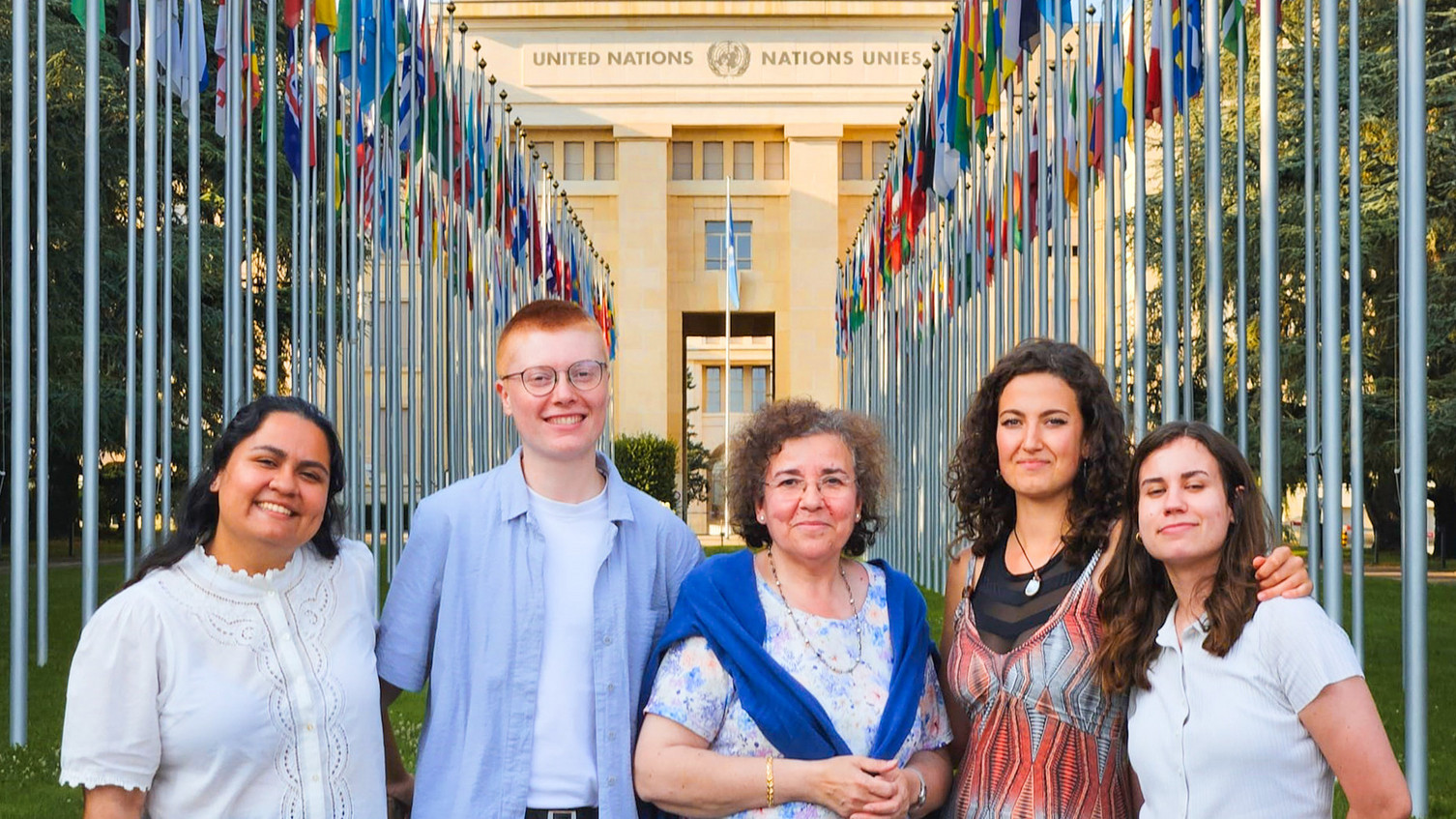Complementary studies: Students encounter indigenous voices at the UN
2025-10-27 A seminar on the role of indigenous languages and cultures took Leuphana students to Geneva – and right into the heart of personal encounters with people from Latin America, among other places.
It was a moving moment for Valeria Joaquina Rosas Rojo: the 20-year-old student met indigenous people from her Bolivian hometown again in Geneva. ‘I grew up with them – seeing them again here was very emotional,’ she describes. In Bolivia, for example, there are 35 other official languages besides Spanish – many of them indigenous in origin and now even part of the education system.
Valeria Rosas Rojo took part in the complementary seminar ‘Los pueblos indígenas de América Latina’ together with other Leuphana students. The focus was on attending the UN conference of the ‘Expert Mechanism on the Rights of Indigenous Peoples’. It brings together indigenous people from all over the world at the Palais des Nations in Geneva.
There, the students observed debates, conducted interviews in Spanish – and reflected on language, power and identity. ‘Spanish is an important tool for communication worldwide, but it is also a language of colonisation,’ explains seminar leader María del Carmen Suñén Bernal from the International Centre.
For Ness Hofmann, it was crucial to engage in direct conversation with indigenous people: ‘I didn't just want to talk about them, I wanted to talk to them,’ says the 23-year-old student, who learned Spanish in an advanced course and is now studying cultural studies at Leuphana College.
Josephine-Rahel Furkert, a student in the Studium Individuale bachelor's programme, also contributes her personal experiences: after graduating from high school, she lived with indigenous people in Ecuador for two months in their community. ‘For us, Spanish was a common foreign language, as the women I lived with spoke Quichua,’ recalls the 25-year-old. The protection of indigenous languages is a race against time: according to UNESCO, one indigenous language dies out every two weeks – irretrievably.
Gala Salazar Salas (20), a student of International Business Administration and Entrepreneurship from Spain, reflects: ‘My homeland was a colonial power. But I also belong to a generation that can build bridges – between cultures, languages and realities of life.’
As their final project, the four students are creating a video documentary to capture their impressions of the conference. The material for this comes from interviews they conducted with conference participants during their stay, which provided them with authentic indigenous perspectives on the UN, life as a person of indigenous origin, problems and worldviews.

